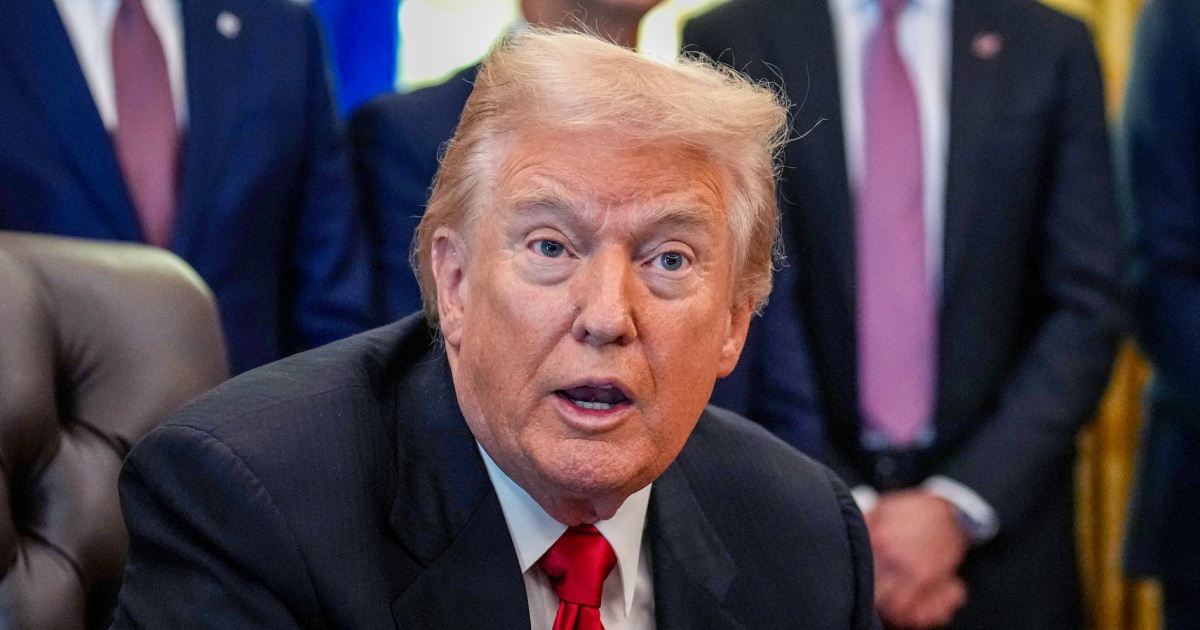As President Donald Trump touts new deals to cut the cost of blockbuster drugs like Wegovy and Zepbound, he’s barely mentioned Medicare’s drug price negotiation program — even though the government is expected to announce lower prices before the end of the month.
The program, created under President Joe Biden’s Inflation Reduction Act of 2022, gave Medicare the authority to negotiate directly with drugmakers on some of the costliest medications.
A Centers for Medicare and Medicaid Services (CMS) spokesperson said the agency is preparing to release the second round of negotiated prices by Nov. 30 — covering 15 drugs, up from 10 last year, and adding Ozempic and Wegovy to the list. The newly negotiated prices won’t take effect until 2027.

The lack of attention has puzzled health policy experts, who say the program could play an important role in lowering prescription drug costs for millions of older adults in the U.S.
About 1-in-5 adults say they’ve not filled a prescription because of cost, according to a poll from the nonpartisan health policy research group KFF.
“Certainly, the flurry of announcements and lack of details [on negotiations] make things confusing,” said Dr. Benjamin Rome, a primary care physician and health policy researcher at Harvard Medical School.
Trump’s approach to lowering drug prices has leaned heavily on executive orders and voluntary deals with drugmakers, rather than legislation. Last week, he announced agreements with Novo Nordisk and Eli Lilly — the makers of Wegovy and Zepbound, respectively — to lower prices for some doses in exchange for tariff relief and accelerated Food and Drug Administration review of new drugs. Several experts described the details as murky and questioned whether the agreements would translate into real savings for Americans. Trump has struck similar deals with Pfizer and Astrazenca.
Rome said the Medicare negotiation program is seen as the steadier, more reliable path to lowering costs for Americans.
Drugmakers can decline to participate — but doing so would likely require pulling their drugs from Medicare entirely, cutting them off from one of the nation’s largest markets. Several companies have challenged the negotiation program in court, but those lawsuits have so far been unsuccessful.
“Although it’s great that the Trump administration wants to aggressively negotiate lower prices with pharmaceutical companies, these ad hoc negotiations seem to be more about announcing short-term political victories,” Rome said.
“I would be very skeptical of relying solely on voluntary deals with drug manufacturers as a main policy for making medications more affordable to Americans,” Rome added. “By contrast, the IRA absolutely will save money for taxpayers through the negotiation process.”
Despite the looming announcement, the White House has said little publicly about the negotiation program or how it fits into Trump’s broader push to lower drug prices.
In an emailed statement, White House spokesperson Kush Desai said: “Democrats endlessly touted the Inflation Reduction Act, which ironically under Biden’s watch did little but increase Medicare premiums. The Trump administration is focused on results, and our historic drug pricing deals with global pharmaceutical giants are proof that we will continue to deliver meaningful change for the American people.”
Last year, the Biden administration announced agreements to lower prices on 10 prescription drugs under Medicare, with those cuts set to take effect in 2026. The drugs included the blockbuster blood thinner Eliquis, along with several cancer and diabetes treatments. At the time, administration officials projected the negotiations would save Medicare enrollees $1.5 billion in out-of-pocket costs in the first year.
Experts say the second round may have an even larger impact than last year’s since some of the drugs on the list — particularly Ozempic and Wegovy — are becoming the most widely used and most expensive in Medicare.
The Congressional Budget Office, a nonpartisan government group that provides budget and economic information to Congress, projects that, because of negotiations, the net price of Ozempic and Wegovy will “fall substantially” beginning in 2027 — cutting Medicare’s spending on each patient who uses the drugs by one third. The CBO also expects that those lower prices are likely to put pressure on other GLP-1 drugs, including Mounjaro and Zepbound.
Stacie Dusetzina, a health policy professor at Vanderbilt University in Nashville, Tennessee, said it’s possible the negotiations may have factored into Trump’s deal on Wegovy and Zepbound last week.
When asked on a call with reporters whether Trump’s deal was related to the negotiations, senior administration officials insisted it was not.
“We’re all eagerly awaiting the announcement of what prices have been negotiated,” Dusetzina said. “It could very well be that this is where the negotiations landed.”
Other experts raised questions about how Trump’s deal fits with the negotiations — or whether the two efforts are even aligned at all.
Tricia Neuman, executive director of the program on Medicare policy at KFF, said it’s “not clear how the recent White House announcement dovetails with the Inflation Reduction Act when it comes to negotiated prices for GLP-1s.”
Rome said Trump’s deals are unlikely to interfere or undermine the negotiation process.
“That process is very clearly spelled out by CMS and has been ongoing throughout the year and will repeat for another 20 drugs early next year,” he said. “I don’t think these side deals with Lilly and Novo will change that.”
Neuman added that while the voluntary deals may be drawing more attention from the White House, they don’t replace the long term impacts of Medicare negotiations.
“The IRA’s Medicare negotiations program is baked into the law, and is up and running, and could ultimately lead to lower prices for far more drugs over time,” she said.

